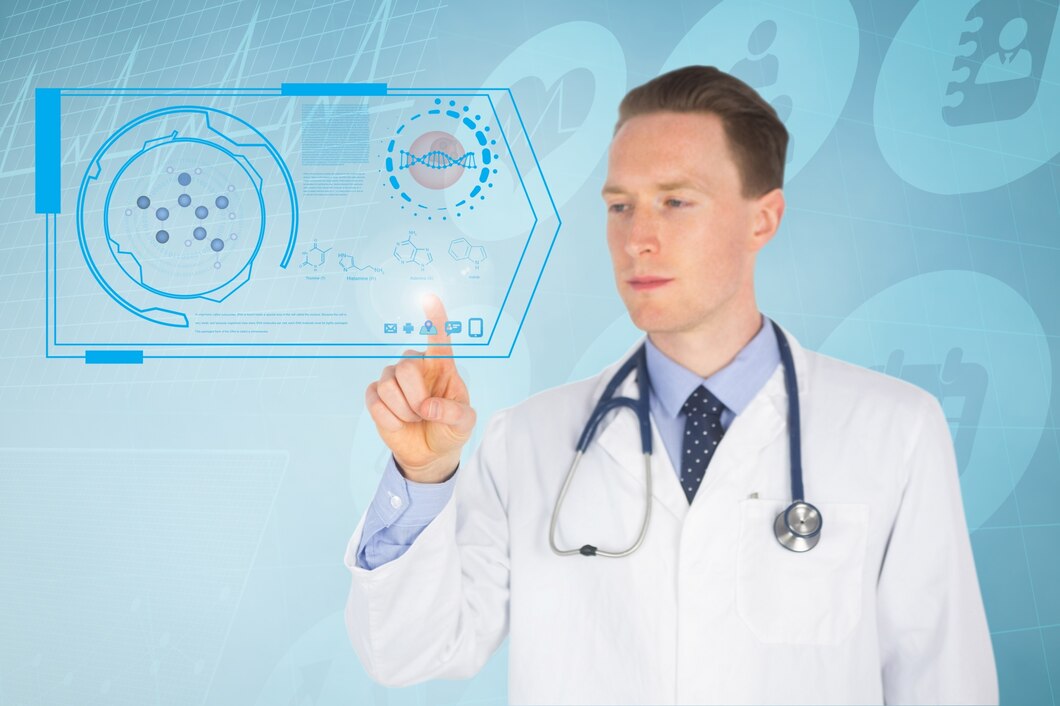
When it comes to healthcare, artificial intelligence (AI) is no longer just a term; it's a game-changer. AI is reshaping every facet of healthcare, from diagnosis to drug research, with its capacity to analyze massive volumes of data, find trends, and make predictions. This article will examine the extraordinary evolution of AI in healthcare, with a particular emphasis on the field's current and future influence and potential.
Medical Testing and Individualized Treatment
The use of AI in medical imaging has been one of the field's most visible successes. X-rays, MRIs, CT scans, and ultrasound are just few of the diagnostic imaging modalities that might benefit from AI-powered algorithm analysis.
Diseases like cancer, heart disease, and neurological illnesses might be detected earlier with the help of AI since it can see minute irregularities in medical pictures that human observers would overlook.
AI's ability to triage and prioritize pictures reduces radiologists' burden and frees them up to concentrate on more challenging situations.
A patient's unique medical history may be used to inform AI's predictions of illness development and response to treatments, allowing for more individualized care.
Natural Language Processing
Natural language processing (NLP) is also a vital part of AI in healthcare. Natural language processing (NLP) may help in many ways by evaluating medical records, clinical notes, and research articles:
1. NLP may assist in locating and extracting significant information from medical records, helping in the diagnosing process.
2. Its ability to sift through mountains of medical material makes it a priceless resource for research and medication development.
3. NLP's ability to predict patient outcomes paves the way for better, more customized treatment.
Natural Language Processing
Natural language processing (NLP) is also a vital part of AI in healthcare. Natural language processing (NLP) may help in many ways by evaluating medical records, clinical notes, and research articles:
1. Artificial intelligence can examine biological data to find proteins or genes related to illnesses that might be used as medication targets. This helps pharmaceutical firms zero in on the most promising prospects for further study.
2. Existing medications may be analyzed by AI to find novel therapeutic applications. This method is more efficient since the risks associated with these medications are already recognized.
3. Novel medicinal molecules with targeted features may be designed more quickly using AI, namely machine learning algorithms.
4. Optimizing patient recruitment, anticipating patient reactions, and pinpointing ideal trial locations are all possible thanks to AI. This results in more productive and economical experiments.
5. To keep an eye on the security of licensed pharmaceuticals and spot any safety risks early, AI models may examine adverse event reports and patient data.
Conclusion
The widespread use of AI throughout the healthcare spectrum, from diagnosis to medication development, is ushering in a new age of patient-centered, high-efficiency care. The rapid development of AI holds great promise for improving patient care, fostering medical innovation, and resolving critical issues in the healthcare system. Stakeholders must collaborate to ensure that AI advantages are maximized while possible concerns are minimized, and safe and ethical deployment of AI in healthcare is of crucial significance. There is no limit to what may be accomplished when you combine the capabilities of artificial intelligence with the healthcare industry's future.
